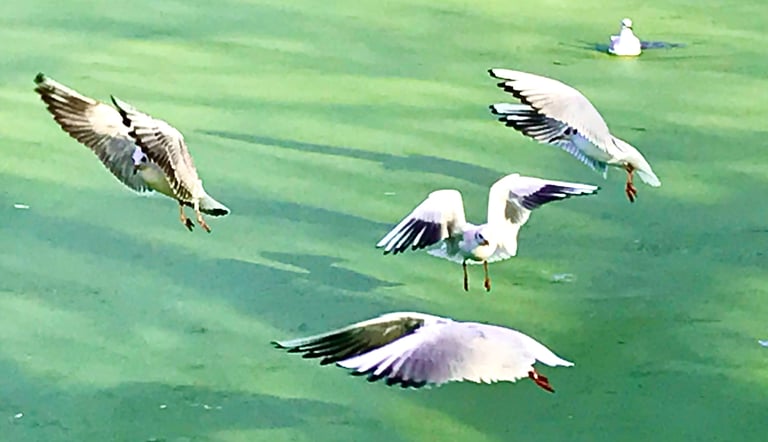I no longer know…
Dr. Victoria King
In Australia, faced with the hypocrisy of my partner and our Tibetan Buddhist teacher Sogyal Rinpoche, as well as too many other western spiritual seekers, I became unable to speak or write the words ‘spirit’ or ‘sacred’, no longer knowing what they meant. Perhaps I reveal my arrogance in presuming that I ever could, but my identity both in America and England had been based on my identification with spirituality. Australia's ancient land brought me to my knees, not in prayer, but in humility and grief.
My senses and sensitivity developed in my birthplace of Kentucky. I savoured wild nature. To counter the personal and collective injustices that I endured and encountered from an early age, I became obsessed with a search for meaning. As a young woman, that search took me far from my home to study esoteric spiritual teachings with Christian, Hindu and Sufi mystics and Buddhist lamas as I lost myself in spiritual practices to ‘save’ myself, to survive.
It took years to face the debilitating repercussions of my denial of the many displacements in my life and to understand the profundity of trans-generational trauma. The shuddering zeitgeist came from spending extensive periods of time with Anmatyerre and Alyawarre women on their land at Utopia when I volunteered to collect their stories. I witnessed their strong kinship ties and embodied connections to their land, and the suffering they and their ancestors have experienced both historically and in the present. I realized that I had not made peace with my ancestors or culture, and was too often mesmerized by shimmering artworks and the beauty of the natural world. When I consciously began to address my past and tried to live without the artifice of a spiritual practice or fascination with another culture’s way of being, my heart broke open. Perhaps wholeness is where holiness resides, facing the insidious nature of denial, being open to pain, developing greater empathy and compassion for all beings and life forms, including oneself.
My heart still breaks daily hearing of the desecration of land, wildlife, and indigenous people’s cultures around the world. For what the people of Utopia taught me is that the land and family are sacred. I now realize that my sanity is inextricably linked with the spaciousness of the earth and sky, the wonders of nature and the more-than-human world. I hold in my heart my ancestors despite their perpetuating traumas from which I have only now begun to heal. My search for spiritual teachers and meaning has ended as I embrace being alone in solitude, silence, time, and space, and watch my moods, my very being, echo and mirror the land, sky, and weather. Being in Australia taught me far more about myself than any religion, spiritual practice or teacher was ever been able to penetrate. The lessons were invaluable, but painful and very hard for me to learn. I have finally come ‘home’, not to the country of my birth, but to England. This is my home because this is where my son and granddaughter live.
Making art for me is a sacred process, self-less, and healing. It is also a radical action. Every gesture, if consciously made, is an act of taking up space, a defiant outward gesture that is an affirmation of oneself as an irritant within a materialistic society. Paul Celan recognized that “Art, with all its attributes and future additions, is also a problem and, as we can see, one that is variable, tough, long lived, let us say eternal.”[i] And I fully agree.
[i] Paul Celan in Nancy Princenthal, ed., Doris Salcedo, Phaidon Press, London, 2000, p. 114, italics in original.




© Photographs and text copyright Victoria King 2022.